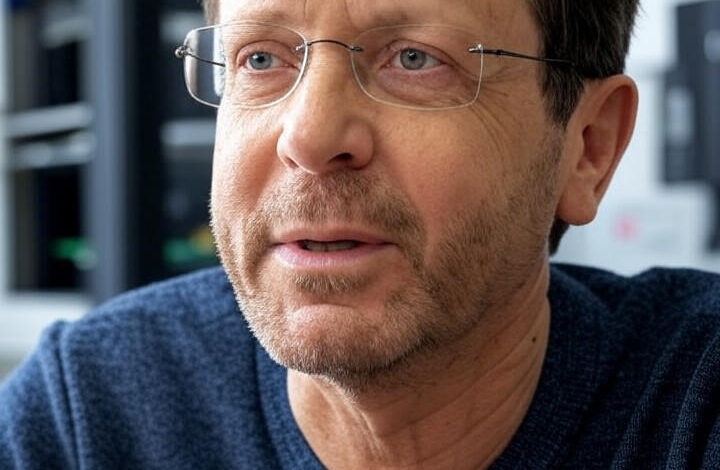Israel Launches Institute to Pioneer 3D-Printed Organs and AI Medicine

In a significant advancement for medical innovation, President Isaac Herzog announced the establishment of a research institute focused on the development of 3D-printed human organs and artificial intelligence (AI) in medicine. The unveiling occurred during a ceremony at the President’s Residence in Jerusalem, emphasizing Israel’s commitment to addressing critical healthcare challenges such as organ shortages and enhancing personalized medicine.
The new institute aims to create a collaborative environment incorporating academia, industry, and government. This initiative seeks to foster technologies that could transform transplant procedures and diagnostic tools, according to a recent report by the Times of Israel. Israel has a rich legacy in bioengineering, with researchers pushing the frontiers of regenerative medicine for years. Notably, in 2019, scientists at Tel Aviv University achieved a landmark by printing the world’s first 3D heart using a patient’s own cells. Although the prototype demonstrated the potential to eliminate waitlists and rejection risks for organ transplants, scaling this technology to functional human size remains a substantial challenge.
Accelerating Bio-Convergence in Medicine
The new research institute is set to expedite efforts in medical innovation by integrating AI for comprehensive data analysis. This integration will facilitate predictive models that assess organ viability and simulate surgical outcomes. Industry experts highlight the potential of this convergence, often referred to as bio-convergence, to yield breakthroughs in printing tissues that can seamlessly integrate with the human body.
In 2023, the Israel Innovation Authority allocated NIS 40 million to support startups in bio-convergence and related fields, laying the groundwork for this initiative. This funding has already encouraged ventures into autonomous medical robotics, focusing on systems designed for minimally invasive surgeries. Medical robotics, a core component of the institute, is expected to enhance precision in procedures that involve 3D-printed implants.
Recent advancements from Israeli companies, such as Nano Dimension and Accellta, have demonstrated the capacity to print human tissues in a matter of months. Coupled with AI analytics, these robotic systems can analyze vast datasets in real time, optimizing organ designs based on individual genetic profiles and reducing post-operative complications.
AI’s Transformative Role in Organ Fabrication
AI integration into 3D printing processes is revolutionizing the creation of physical organ models for surgical planning. A study published in PMC last year highlighted the efficiency of AI algorithms in refining 3D models to reflect patient-specific anatomies, thus replacing outdated animal testing with highly accurate simulations. Ethical discussions concerning organ printing have been prominent in Israel since the 2019 heart breakthrough, as detailed in various analyses by the Times of Israel.
On the robotics front, innovations such as soft robotic arms for in-body 3D printing are being developed by engineers at UNSW Sydney, with potential adaptations for Israeli laboratories. These flexible devices, as reported in a 2023 article by UNSW Newsroom, could allow for the direct printing of biomaterials onto organs, thus minimizing the need for invasive surgeries. Israeli researchers are exploring similar technologies, utilizing AI to ensure precision in printing on contracting tissues, as indicated by studies from the University of Minnesota.
Despite the promising developments, challenges persist, including regulatory barriers and the necessity for scalable bioprinting materials. Recent discussions on social media platform X (formerly Twitter) among tech analysts have brought attention to ongoing debates regarding intellectual property in AI-assisted designs. Israeli startups supported by the Innovation Authority are leading the way in patent filings related to these advancements.
Economically, these initiatives position Israel to attract substantial investments, potentially surpassing competitors in Europe and the United States. President Herzog emphasized that the institute will foster international collaborations, sharing AI datasets to facilitate global advancements in healthcare. Industry insiders predict that functional 3D-printed organs could enter clinical trials within five years, which could fundamentally change healthcare delivery.
Looking to the future, the convergence of these technologies may extend beyond organ fabrication to include personalized prosthetics and drug delivery systems. Reports from Futures Platform speculate the possibility of 3D-printed hearts for transplants by 2025, aligning with Israel’s ambitious timeline. Ethical frameworks, as discussed in coverage by BBC News, will be essential to navigate concerns regarding access and equity in these innovative advancements.
The establishment of this institute marks a strategic advancement for Israel, merging the nation’s technological expertise with humanitarian objectives. By leveraging AI for data-driven insights and robotics for precise execution, the initiative has the potential to alleviate the organ crisis, saving countless lives and setting new benchmarks for innovation on a global scale.






